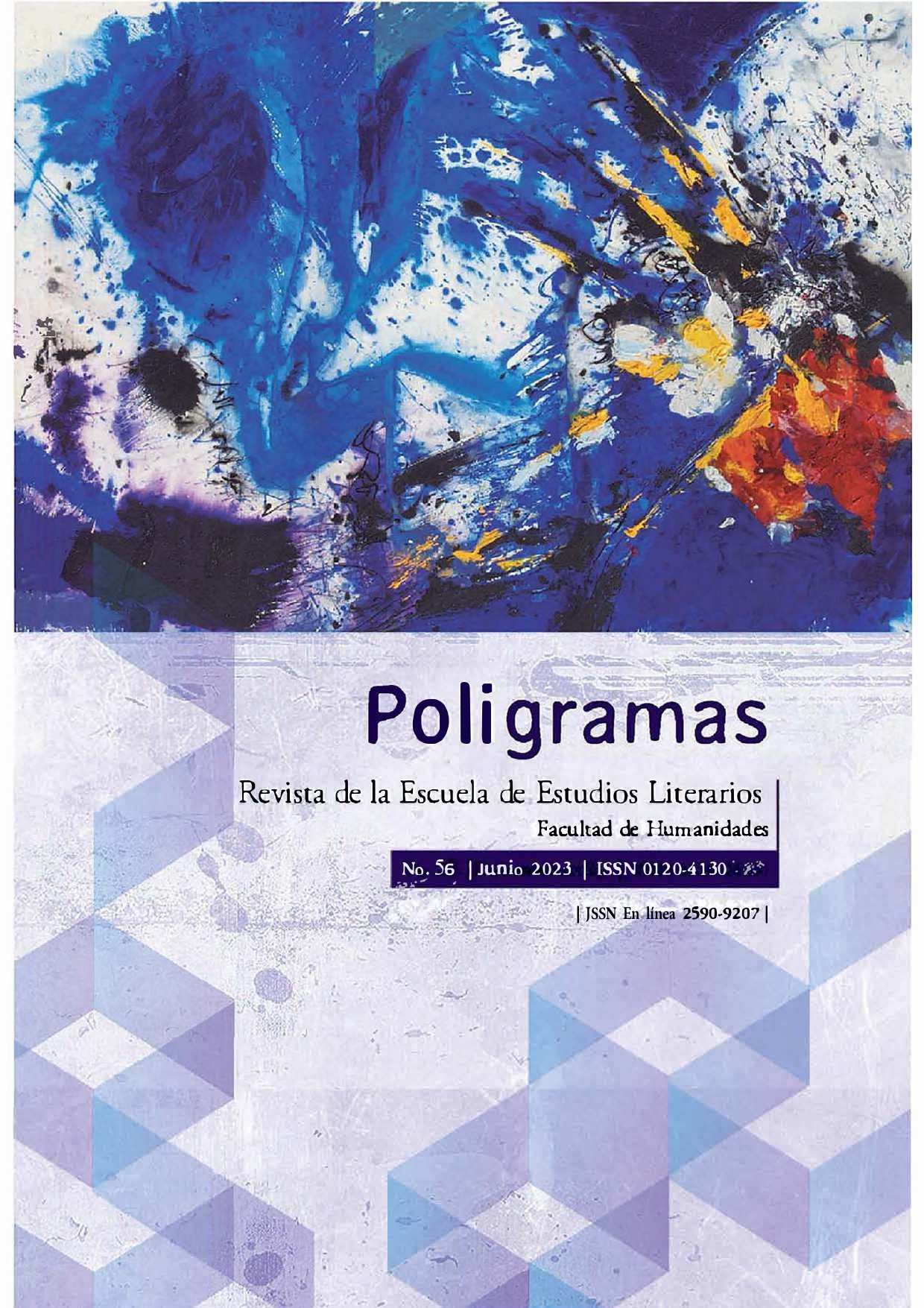Andrés Caicedo Queer: ¡Que viva la música!, manifiesto de subversión sexual y cultural frente a la herencia de la colonia en Cali
Palabras clave:
Andrés Caicedo, Literatura colombiana, salsa, género, CaliContenido principal del artículo
Este artículo propone una lectura queer y decolonizante de la novela ¡Que viva la música!, publicada en Colombia en 1977 y escrita por el caleño Andrés Caicedo. El análisis aquí expuesto postula que María del Carmen Huerta, heroína de la novela, renuncia a su clase social y acepta las experiencias vitales de las clases bajas de la ciudad de Cali, en un proceso de subversión contra el régimen discursivo sobre su cuerpo y sexualidad. Se sostiene, además, que el vector de subversión en la novela es la salsa como género musical. Se parte de los análisis de Michel Foucault, Teresa de Lauretis, Eve Kosofsky Sedgwick, Gayle Rubin, José Esteban Muñoz, Judith Butler, entre otros, para demostrar que toda tentativa queer en Colombia – y América Latina – debe pasar por un proceso de desarticulación de los regímenes discursivos del poder político, económico y cultural de las clases altas.
Butler, Judith. Gender Trouble, Feminism and the Subversion of Identity. New York and London: Routledge, 1990. Impreso.
Caicedo, Andrés. ¡Que viva la música! Bogotá: Planeta, 2017. Impreso.
De Lauretis, Tereza. “Queer Theory: Lesbian and Gay Sexualities, An Introduction. ” Differences, Vol. 3, no. 2, 1991: 252-267. DOI: https://doi.org/10.1215/10407391-3-2-iii
Duchesne Winter, Juan y Gómez, Felipe, (eds). La estela de Caicedo: miradas críticas. Pittsburgh: Instituto Internacional de Literatura Iberoamericana, 2009. Digital.
Foucault, Michel. The History of Sexuality. Vol. 1. New York: Pantheon Books, 1978. Impreso.
Fraser Delgado, Celeste y José Esteban Muñoz. Every Night Life. Durham: Duke University Press, 1997. Digital.
Gayle, Rubin. “Thinking Sex: Notes for a Radical Theory of the Politics of Sexuality. ” Culture, Society and Sexuality, edited by Richard Parker and Peter Aggleton. London and New York: Routledge, 2007.
Gómez, Felipe. “Caníbales por Cali van: Andrés Caicedo y el Gótico Tropical.” Íkala, revista de lenguaje y cultura. Vol. 2, no. 18, 2007: 121-142. DOI: https://doi.org/10.17533/udea.ikala.2715
Gonzalez, Charity Cocker. “Agitating for Their Rights: The Colombian Women's Movement, 1930-1957.” Pacific Historical Review. Vol. 69, no. 4, 2000: 689-706. DOI: https://doi.org/10.2307/3641230
Gutiérrez Ramírez, Diana Carolina y Joseph Rodrigo Mejía Ama. “Sexualidades marginalizadas: un acercamiento a la zona de tolerancia de Cali, 1960-1970.” Anuario Colombiano de Historia Social y de la Cultura Vol. 43, no. 1, 2016: 203-231. DOI: https://doi.org/10.15446/achsc.v43n1.55069
Kosofsky Sedgwick, Eve. Tendencies. Durham: Duke University Press, 1993. Digital. DOI: https://doi.org/10.4324/9780203202210
McCallum, E. L. y Tyler Bradway. “Thinking Sidewas, or an Untoward Genealogy of Queer Reading.” After Queer Studies, Theory and Sexuality in the 21 Century, edited by Tyler Bradway and E. L. McCallum. Cambridge: Cambridge Univeristy Press, 2019. Digital.
Melgarejo Acosta, Maria del Pilar. El lenguaje político de La Regeneración en Colombia y México. Bogotá: Editorial Universidad Javeriana, 2010. Impreso.
Muñoz, Juan Esteban. Cruising Utopia, the Then and There of Queer Futurity. New York: New York University Press, 2019. Digital.
Ochoa, Juan Sebastián. “La cumbia en Colombia: invención de una tradición.” Revista Musical Chilena Vol. 70, no. 226, 2016: 31-52. DOI: https://doi.org/10.4067/S0716-27902016000200002
Ortiz Mesa, Luis Javier. “La Iglesia Católica y la Formación del Estado-Nación en América Latina en el siglo XIX.” Almanack. No. 6, 2013: 5-25. DOI: https://doi.org/10.1590/2236-463320130601
Palencia Sampayo, Andrés Eloy y Cristiane Navarrete Tolomei. “El desplazamiento cultural en la obra ¡Que viva la música! de Andrés Caicedo.” Contexto. Vol. 35, 2019: 300-318. DOI: https://doi.org/10.12957/cadsem.2019.38153
Parker, Davis y Louis Walker. Latin America´s Middle Class. Plymouth: Lexington Books, 2013. Digital.
Preciado, Paul. Testo Yonqui. Madrid: Espasa, 2008. Impreso.
Renta, Priscila. “Salsa Dance: Latino/a History in Motion.” Centro Journal Vol. 16, no. 2, 2004: 138-157.
Tortorici, Zeb. Sins Against Nature, Sex and Archives in Colonial New Spain. Durham and London: Duke University Press, 2018. Digital. DOI: https://doi.org/10.1515/9780822371625
Ulloa, Alejandro. “La salsa en Cali: Cultura Urbana, Música y Medios de Comunicación.” Boletín Socioeconómico. No.19, 1989: 141-154.
Vásquez Hurtado, David. “Hay fuego en el 23: el baile como profanación en Que viva la música de Andrés Caicedo.” Divergencias. Revista de estudios lingüísticos y literarios. Vol. 11, no. 2, 2013: 2-12.
Downloads

Esta obra está bajo una licencia internacional Creative Commons Atribución-NoComercial-CompartirIgual 4.0.

